
Classic cars forum & vehicle restoration.
|
|
| Author |
Message |
roverdriver

Joined: 18 Oct 2008
Posts: 1210
Location: 100 miles from Melbourne, Victoria, Australia
|
 Posted: Wed Nov 27, 2019 11:17 am Post subject: An Arty Tour in Victoria (Aus). Part 2 Posted: Wed Nov 27, 2019 11:17 am Post subject: An Arty Tour in Victoria (Aus). Part 2 |
 |
|
This is the second part of a longer story. If you have not see the first part, you can find it here- http://www.oldclassiccar.co.uk/forum/phpbb/phpBB2/viewtopic.php?t=21332
Up bright and early on Monday morning, I checked Beatrix- oil water etc.,

We packed up and set off at seven o’clock. The first stop would be Sea Lake, about 50 miles away. As the name suggests there is a large lake nearby, but our focus was to find the railway station. As we pulled into the town, Noreen spied some murals, so we stopped to examine them before proceeding to the now closed railway station.
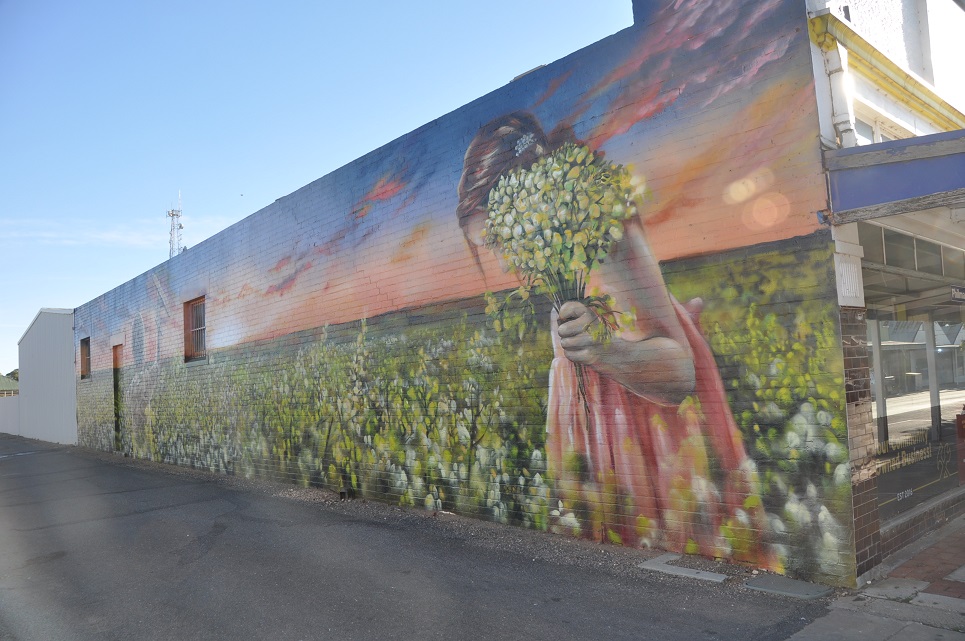
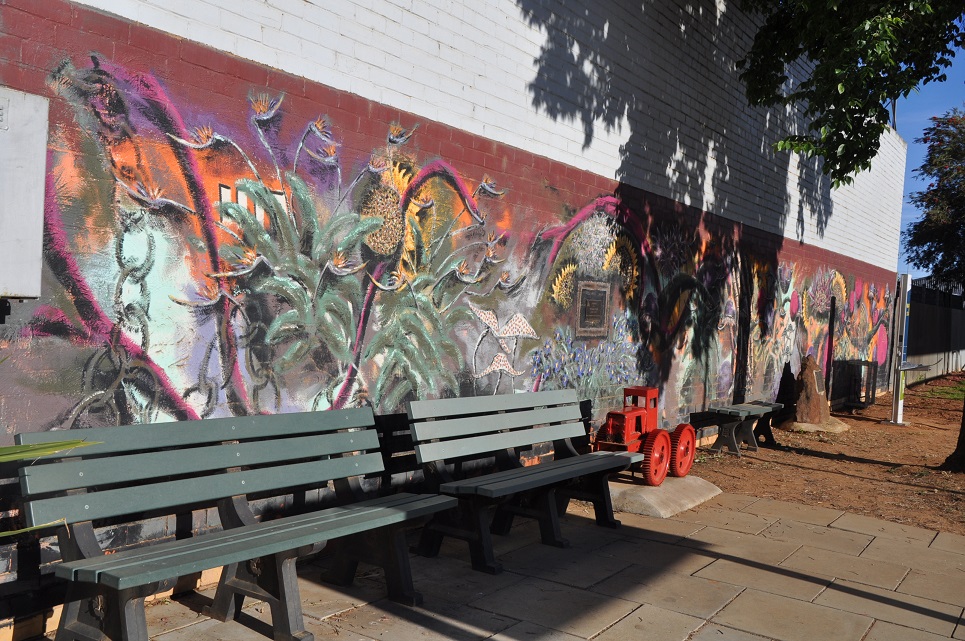
Opposite this work is Sea Lake's Royal Hotel featuring a design from about a hundred years ago with an elaborate 'Cast Iron Lace' balcony.
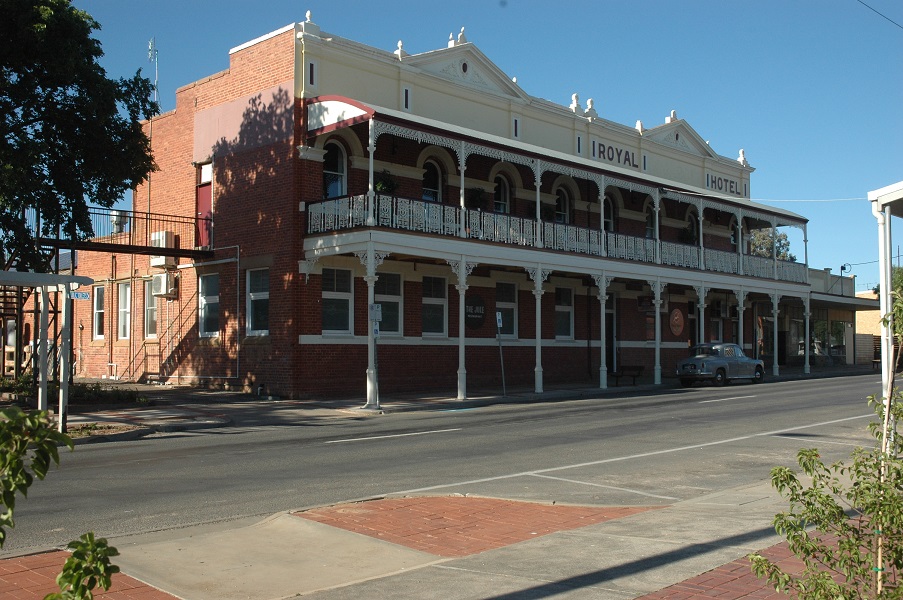
From here, it was just around the corner to the railway station and several massive wheat silos.
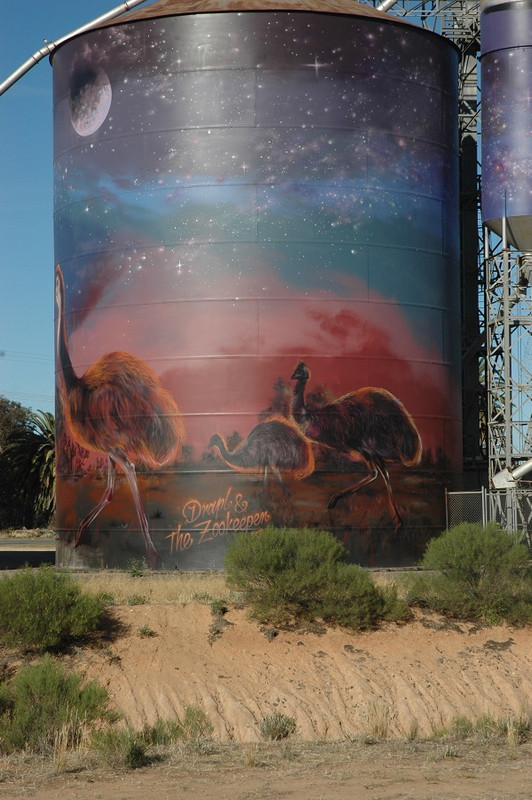
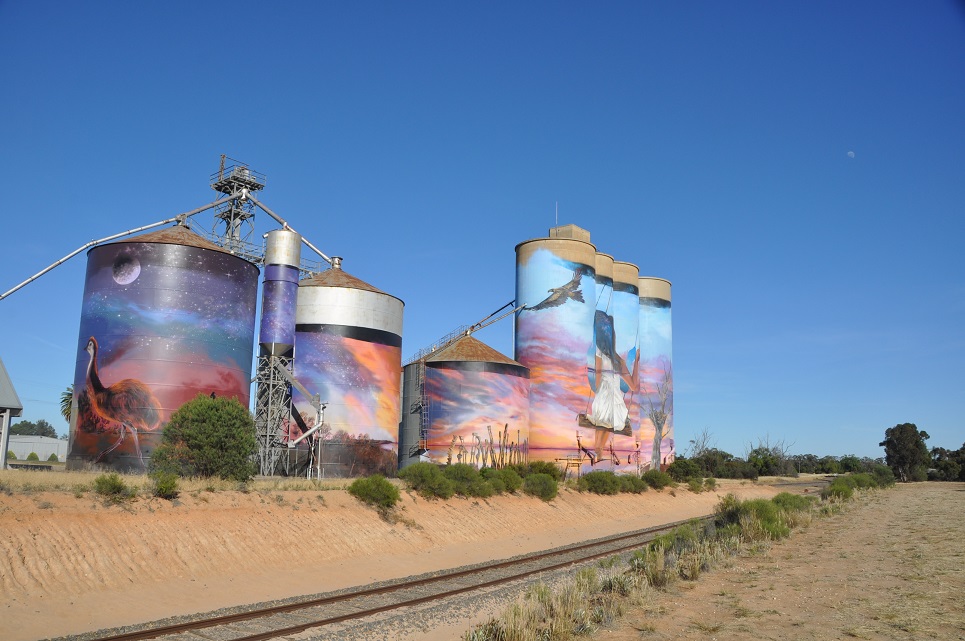
Not all silos in the area have been painted, in fact I have been told that only those that are now out of commission bear art work, and not all of them have been so adorned. It was for this trail of painted silos that we had made this trip.
As we left the station another mural caught our eye.
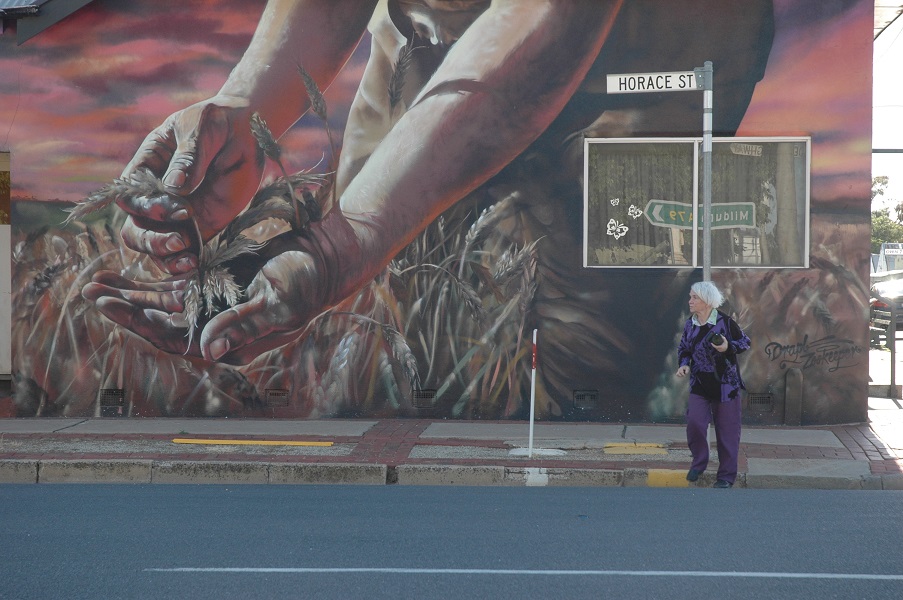
This part of Victoria consists of a huge plain. Annual rainfall is about 12 inches (300 mm), therefore by nature becomes ideal grass lands. There were large areas of stunted trees, still to be seen by the roadsides, but the land was cleared and used for grazing sheep as well as for wheat growing. After WW1, though, a slow transition to grain cropping occurred, that increased even more after WW2. Sheep, in the area, are now hard to find.
Wheat and other grains used to be harvested into hessian sacks and therefore handled by the bag, but bulk handling gradually took over. It is interesting that John Monash (later Sir John), the man whose name has been given to the freeway mentioned near the start of this tale, was instrumental in the development and construction of concrete silos. His first was at Rupanyup for a flour mill there in 1907. It was not, however until the late 1930's that a concerted effort to build bulk handling silos at railway stations was commenced. The war intervened with progress of that project but it was taken up again after 1945, so now there exists a chain of silos, dotted along the railway lines throughout grain growing areas of, not only Victoria, but other states as well.
Below, a picture taken in Sea Lake in 1905 (courtesy Museum of Victoria.
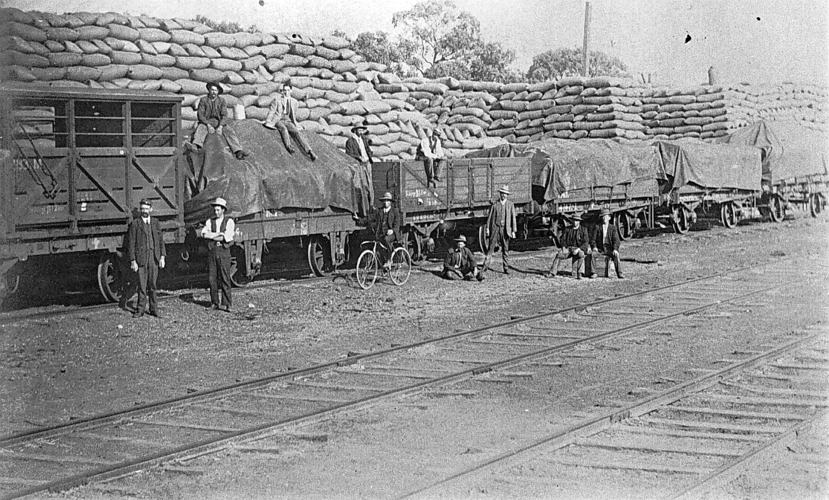
From Sea Lake we set off to a different rail line at Patchewallock, which has the northernmost painted silo of the group. For ten miles we travelled in a mainly Northerly direction, then off onto a minor road on which to travel cross country. The turning was towards Speed. The minor road was well formed even though the tar seal was narrow, but we encountered only two cars, in that 21 miles. I had better explain- the name of the location was ‘Speed’, taken from the surname of early settler brothers. There used to be a sign at the approaches on the Sunraysia Highway showing “Speed, Please Slow Down’, but that has been amended to “Township of Speed, Please Slow Down”.
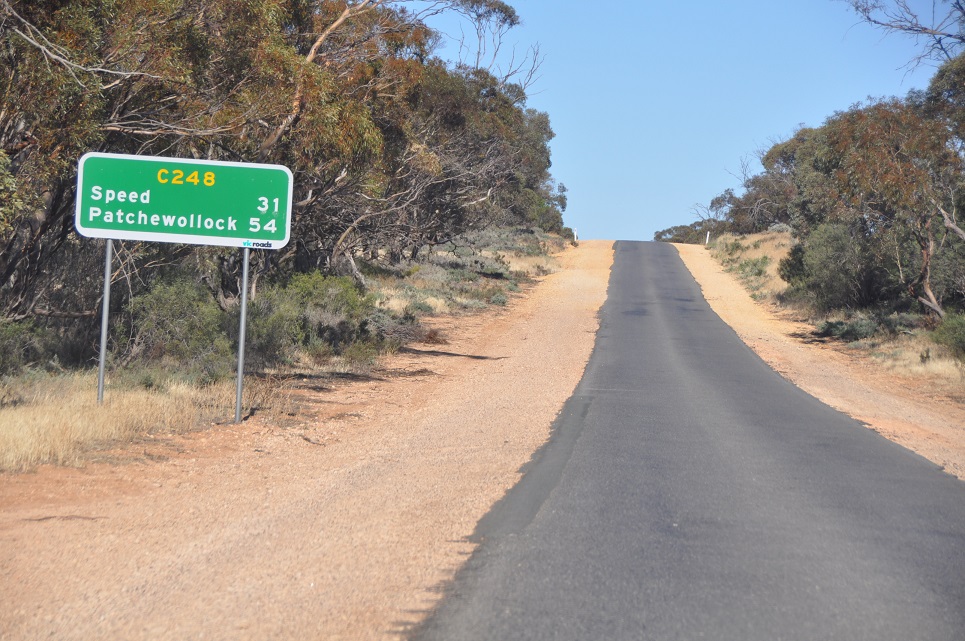
A zig-zag onto another minor road and a few more miles and we arrived at Patchewollock. Our morning drive so far, had been nearly 100 miles.
The unusual town name is actually a corruption of two aborigine words meaning “plenty of porcupine grass”. The area was opened up for soldier settlement after WW1, with mostly one square mile blocks, that is 640 acres. The drought of 1920 made things very difficult and the one square mile was insufficient to be a viable farm, consequently many settlers left and their land was taken over by others. Modern machinery makes the now huge farms into viable operations.
Throughout this area, known as the ‘Mallee’ is a native bird called the Mallee Fowl. Now protected, they were considered fine game birds by the aborigines and settlers alike. The giant versions commemorate this local bird.
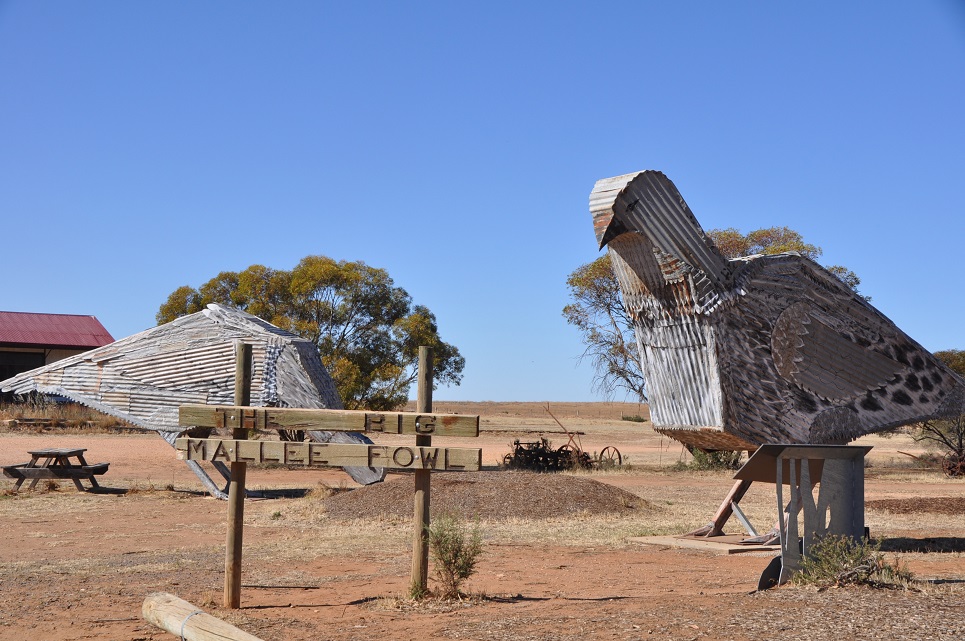
I was somewhat concerned about our fuel situation by now. I had hoped to buy petrol here, but alas, a town of only a few houses no longer has a petrol station. There is the usual pub, (with a nice painted frieze above the verandah) and a post office, plus evidence of a fuel stop, but no other retail establishments and now no school. The railway line was closed in 1986, but interestingly the small station building and goods shed remain as one of the few existing examples, of their type, still to be seen. Notice that the distance marker shows rail miles from Melbourne.
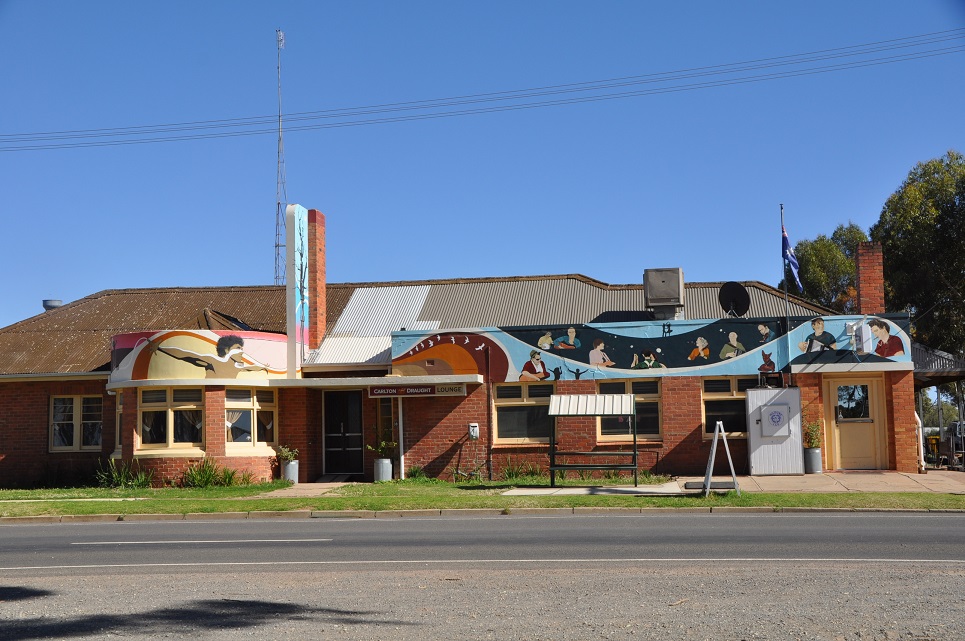
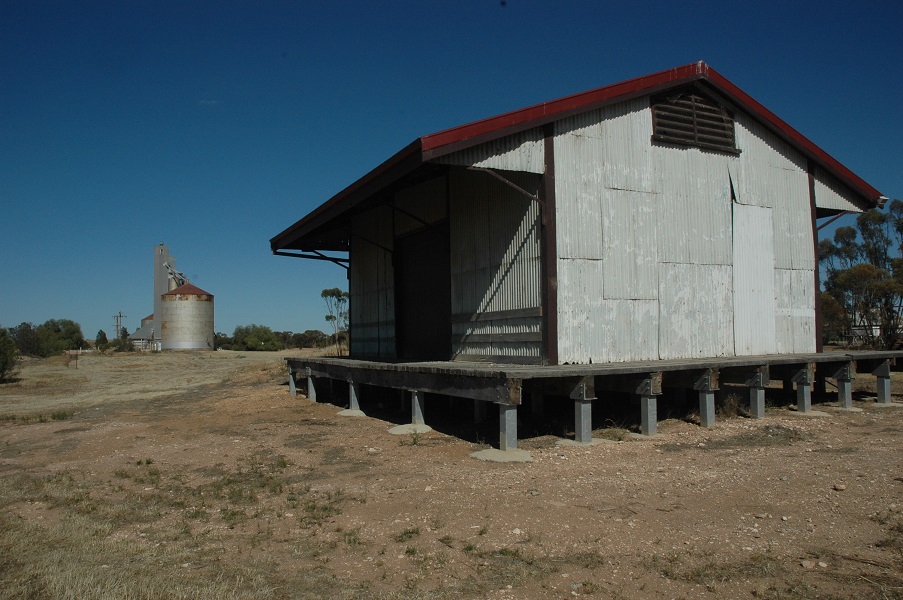
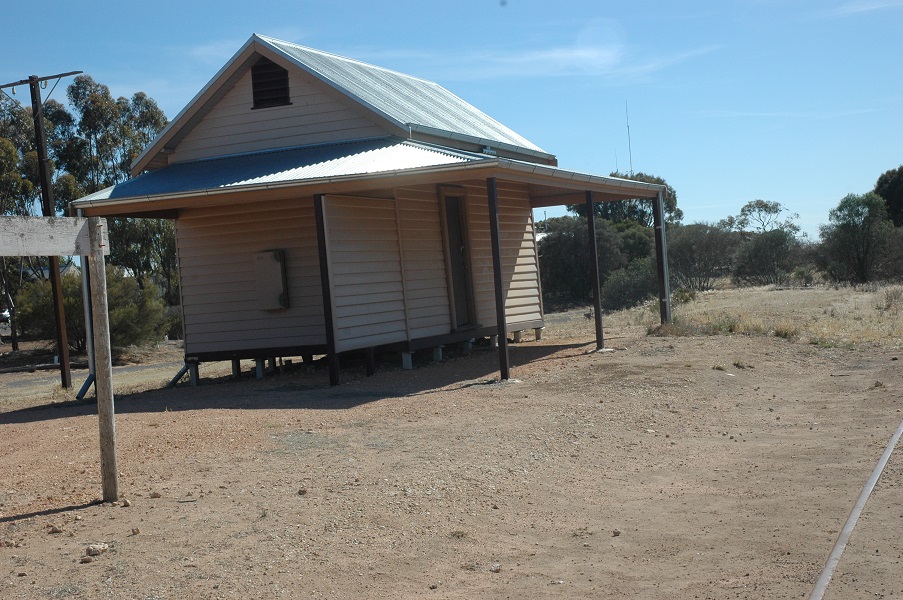
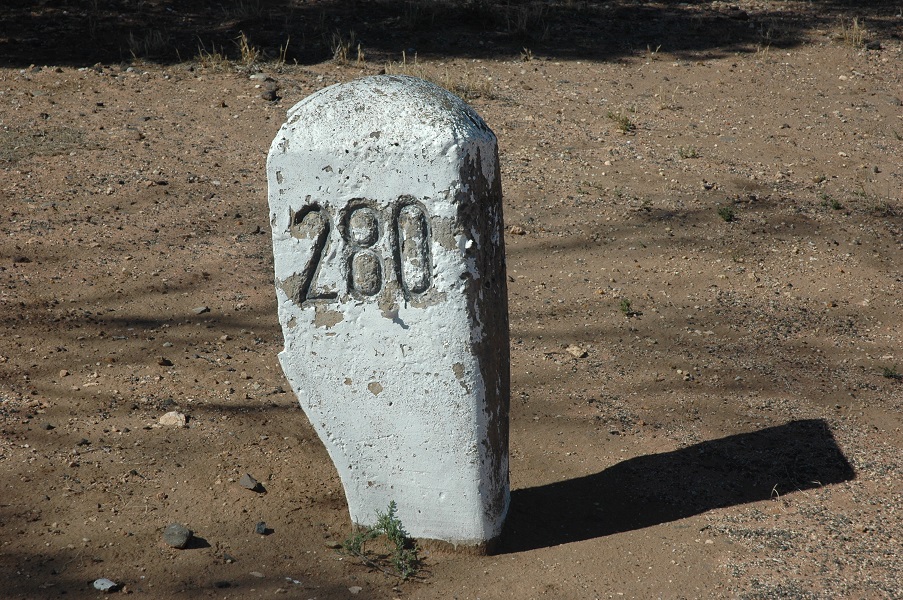
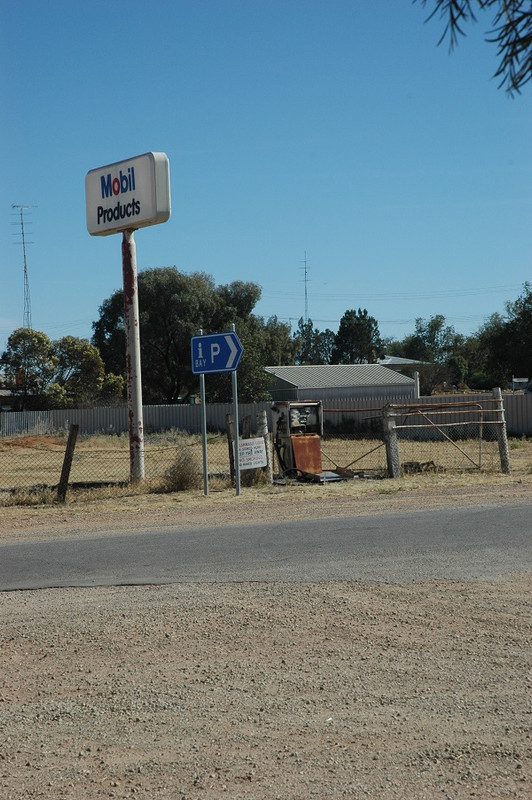
The item that we had really come to see-
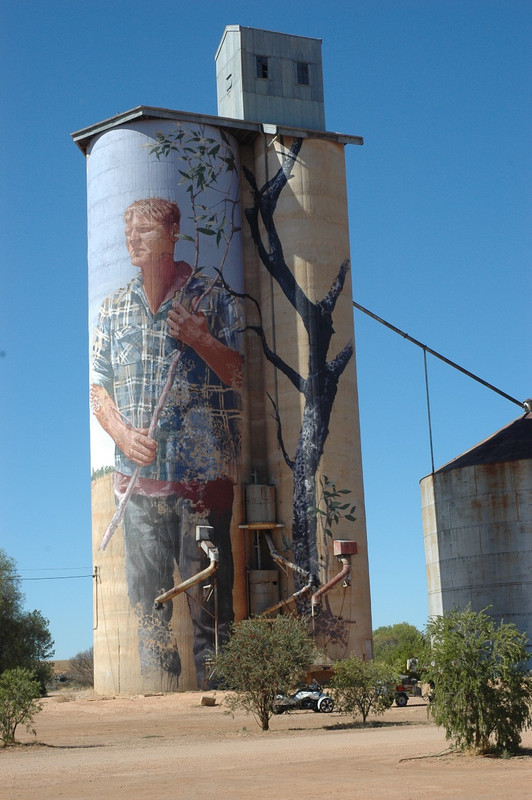
The story will continue with Part 3 here http://www.oldclassiccar.co.uk/forum/phpbb/phpBB2/viewtopic.php?p=170817#170817
_________________
Dane- roverdriver but not a Viking.
Last edited by roverdriver on Thu Nov 28, 2019 7:00 am; edited 1 time in total |
|
| Back to top |
|
 |
Rick
Site Admin

Joined: 27 Apr 2005
Posts: 22849
Location: UK
|
|
| Back to top |
|
 |
|
|
You cannot post new topics in this forum
You cannot reply to topics in this forum
You cannot edit your posts in this forum
You cannot delete your posts in this forum
You cannot vote in polls in this forum
|
php BB powered © php BB Grp.
|
